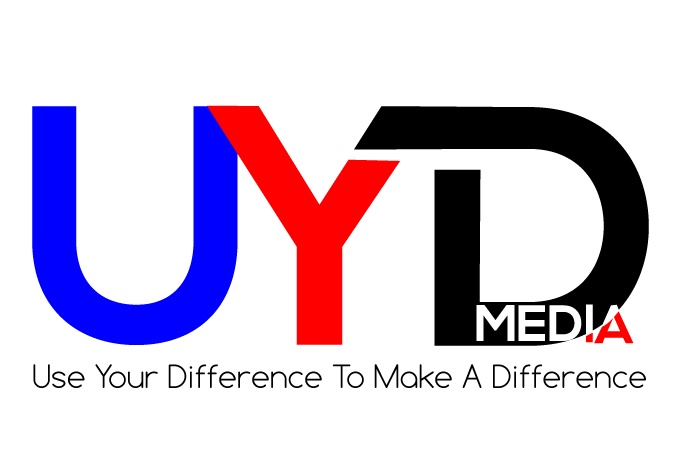Of all the topics I cover in my seminars, the subject of relationships seems to elicit the most interest and response. At our core, I think we TCKs know that we don’t function like others in this area, yet we can’t quite put our finger on what it is that makes us so different.
Our methods for developing relationships might be most acutely challenged during our initial reentry into our Passport Culture—a world that is supposed to be familiar and comfortable to us, but is often confusing on a human-to-human level.
In the interest of facilitating our entry into new social circles, it might be useful to explore why we do things differently and how we can adapt in order to find true connection with our mono-cultural peers.
[Clarification: In no way do I use “mono-cultural” as a negative label. People who have never left their country of origin are not inferior to those who have. Their lives are just as significant and their histories are just as rich and worthy. “Multi-cultural” and “mono-cultural” merely serve to distinguish people groups with different experiential backgrounds.]
Introducing The Time/Depth Dilemma: whereas TCKs generally require depth in forming relationships, mono-culturals require time to form meaningful connections. On paper, it looks like this:
Do you see how quickly and fearlessly the TCK dives deep? To the mono-cultural person who craves time to slowly move from depth to depth, the TCK appears far too intense. To the TCK who values speedy self-revelation, the mono-cultural’s emphasis on time feels shallow and pointless. As a result, we (stupidly) reach the conclusion that an entire people-group is relationally flimsy and write them off with an arrogant generalization.
Why do TCKs do things so differently? There are several reasons, really. The greatest of them is the awareness that time is limited. We’ve lived so long in a world saturated with both expected and unexpected goodbyes that we enter each relationship anticipating that it could end at the drop of a hat—when circumstances, mission mandates, finances or the inherent transience of the international community rip us away from those we’ve loved.
We function as if there is no time—because so often, there isn’t! When we meet someone new, it’s as if an invisible timer has started a countdown. Quickly! Figure out who this person really is. Tell her about your greatest joys and sorrows and see if she knows what to do with them. Ask him about his struggles and emotions, and see if he’s willing to be vulnerable. Throw every “like” and “dislike” at the person you’ve just met and see where your points of interest intersect. Then decide (just as quickly) whether this person is capable of the depth you crave and worth the inevitable pain that will come when your proximity is suddenly ended.
It’s a lightning-fast vetting process that serves two important purposes: eliminating the tedious, long-winded “getting to know you” stage and diving headfirst into the kind of meaningful connection that feeds your soul.
TCKs can cram a lifetime of friendship into just a few weeks, because we’re so focused on making the most of what we have while we still have it.
Mono-culturals function completely differently. They observe a steady descent through well-defined relationship levels—not because they’re shallow, but because it’s the progression that makes their culture comfortable. Each level can take days or months, depending on personalities, and will move from safe revelations about tastes and allegiances to a more complex and visceral disclosure of beliefs and emotions.
As TCKs, we might look at the progression of mono-cultural relationships and roll our eyes. We dislike the expectation that we engage in small talk for days, weeks or months before progressing to a deeper level of communication. It feels absurd and trivial to us. Even when we do try to play along, we often find that our version of “small talk” can leave our friends bemused. Because small talk, to us, includes discussing personal, intimate things. It’s not a big deal—it’s how we roll! But we’re not in our own world anymore, where sameness allows for shortcuts. We’re in somebody else’s world. And respecting a culture means respecting its relational methods.
Look back at the Time/Depth diagram above. Do you see how both relational methods eventually end in friendship? That’s the bottom line. As we enter into a mono-cultural setting that has a well-established progression for making friends, it falls on us to be flexible. This culture was not designed for our comfort—it was designed for the comfort of those who belong in it (L. Stephens). It would serve us well to apply all the cross-cultural skills and flexibility we’ve learned in our international lives to this culture too.
To be honest, there are some downsides to the TCK way of forming relationships. The first is that we can be far too quick to dismiss someone we’ve just met. In a mono-cultural setting, where time is essential, we might be judging people to be “unworthy” of our attention and affection before we’ve given them the time to go through the requisite levels and reach authentic intimacy.
How many people have I dismissed because they didn’t dive deep enough fast enough—people who might have become kindred spirits if I’d just been patient enough to see where it led?
We also risk creating misunderstandings if we enter a mono-cultural setting without respecting its relationship-building methods:
- Scaring others off with the intensity of our self-revelation. If they’re not used to that kind of thing, it could freak them out enough to prohibit further connection.
- Discovering that members of the opposite sex have taken our willingness to be vulnerable as a romantic overture. I’ve interviewed dozens of TCKs who found out too late that a mono-cultural “friend” thought they were engaged in a much deeper girlfriend/boyfriend relationship! That’s what happens when we skip cultural levels of communication.
- Finding that we’ve attracted the needy, not the healthy. In mono-cultural settings, the needy are generally those who expose themselves too readily. They’ll recognize themselves in us and latch on. Disentangling ourselves from them down the road might be a messy proposition.
- Sharing our “deepest, darkest” with untrustworthy people to whom we haven’t given the time to prove their character. It’s important that we allow enough weeks and months to pass to be sure of the person to whom we’re revealing ourselves. (H. Tunberg)
So what is my advice to those of you who are entering a new world in which friendships are predicated on mono-cultural principles?
First, use your vast cross-cultural skills! If you were dropped into a primitive tribe in the jungles of South America, you’d find a way to learn about the people, to understand and emulate their approach to friendship. You wouldn’t demand that they become like you, yet so often, that’s our expectation of our passport culture. Be tolerant, be adaptive, be kind. Consider this a cross-cultural experience.
Set healthy boundaries. Be aware that over-sharing too soon can get you into trouble, so be honest and open, but respect this culture’s need for gradual intimacy. You don’t want to scare away a potential friend.
Commit to the long-term. Though the small talk might feel tedious and the process too drawn-out, you won’t really know how these friends could enrich your life (and you theirs) until you’ve given those relational stages the time to play out. As you can see from the Time/Depth graph, both methods of relationship-making end in friendship. And though you may not have your “internationality” in common with mono-cultural friends, I can assure you that we Third Cultured People have much to learn from those who have never owned a passport—like belonging, loyalty, family bonds, cultural identification and long-lasting relationships…
So be patient. Expect good things. Engage in the process.
********
About Michele Phoenix
 Born in Strasbourg to an American mother and a Canadian father, Michèle is a Third Culture Kid fully engaged in Third Culture work. She attended French schools until 9th grade, then transferred to a boarding school in Germany for her high school years. After earning a BA in Communications from Wheaton College (USA), she returned to Germany as a teacher and spent twenty years deepening her understanding of the TCK experience. Now a published author (Tyndale), she serves with Global Outreach as a TCK Advocate, developing materials, speaking, writing and mentoring international families. Recent engagements have taken her to Nepal, Germany, Spain, Czech Republic, France, Switzerland and Canada. For more on Michèle’s books, blog, work and resources, visit www.michelephoenix.com.
Born in Strasbourg to an American mother and a Canadian father, Michèle is a Third Culture Kid fully engaged in Third Culture work. She attended French schools until 9th grade, then transferred to a boarding school in Germany for her high school years. After earning a BA in Communications from Wheaton College (USA), she returned to Germany as a teacher and spent twenty years deepening her understanding of the TCK experience. Now a published author (Tyndale), she serves with Global Outreach as a TCK Advocate, developing materials, speaking, writing and mentoring international families. Recent engagements have taken her to Nepal, Germany, Spain, Czech Republic, France, Switzerland and Canada. For more on Michèle’s books, blog, work and resources, visit www.michelephoenix.com.




